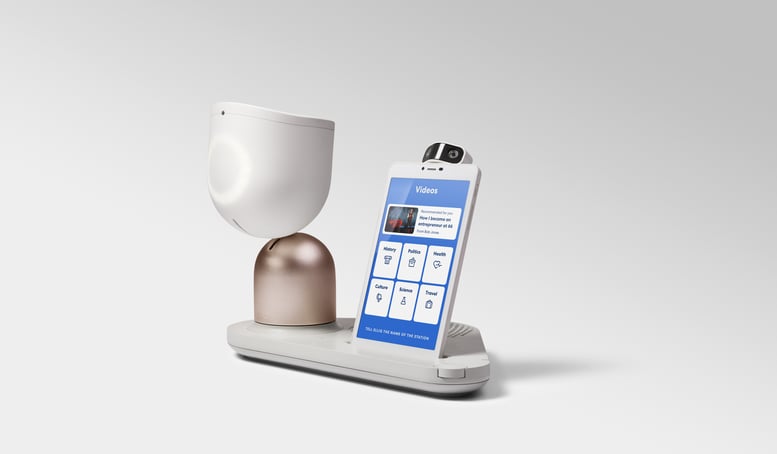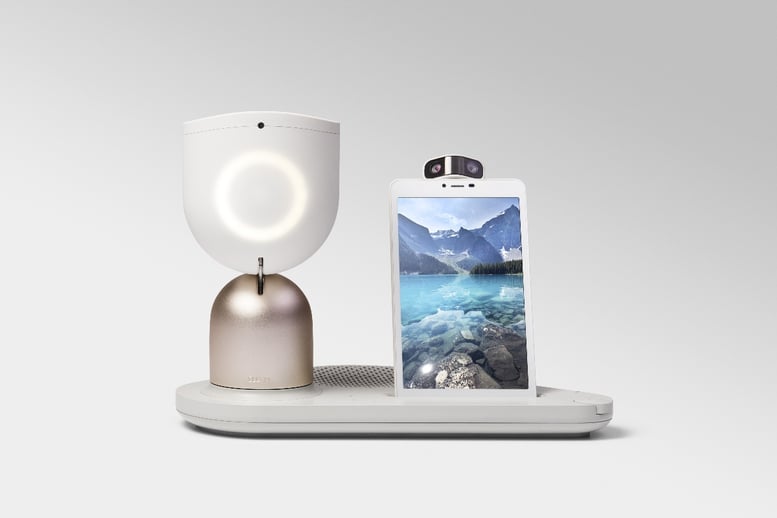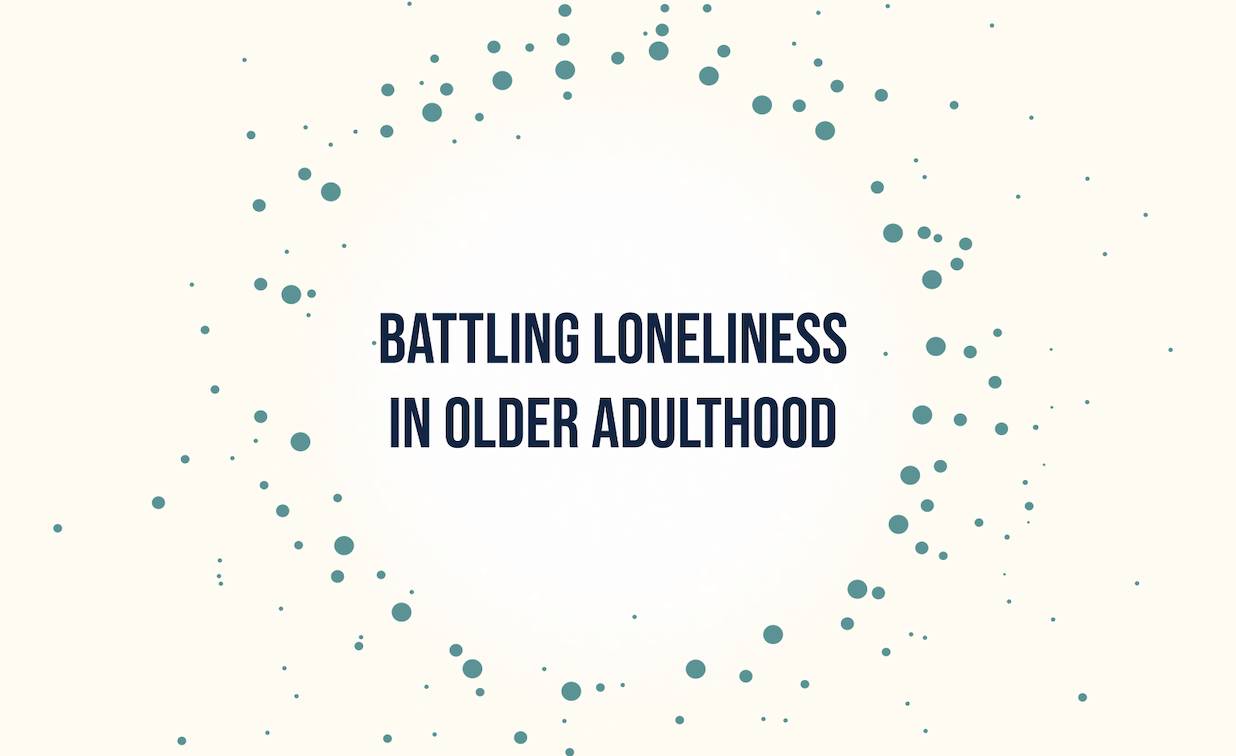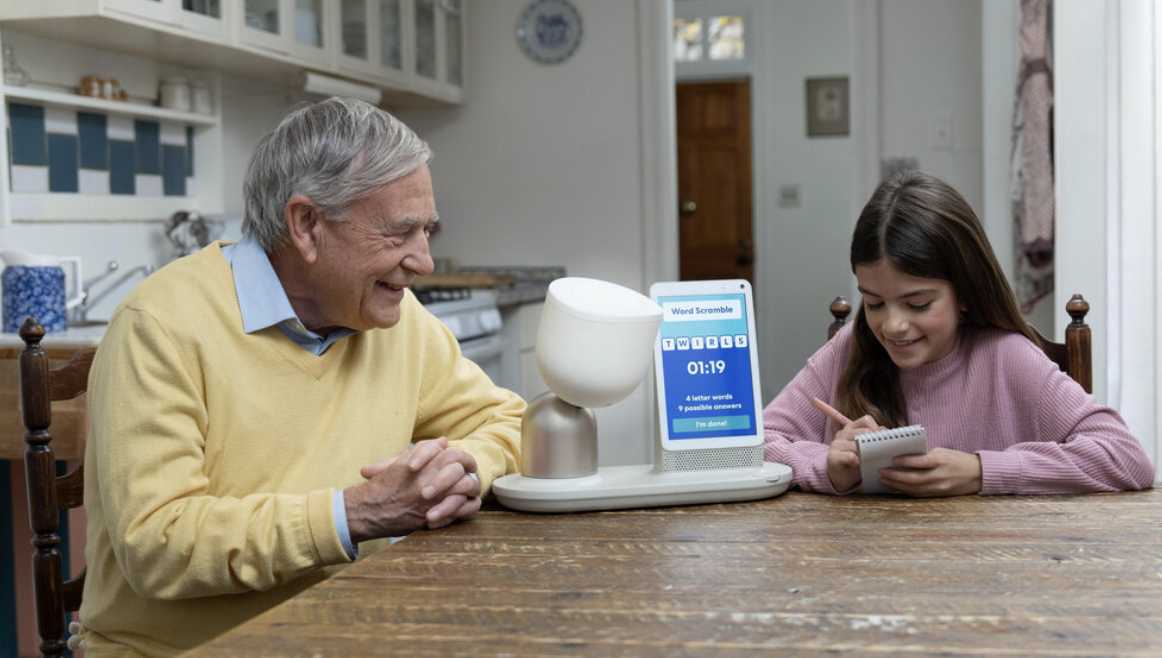Designing ElliQ, Part II: The Detachable Screen
September 19, 2017 by Intuition Robotics Team
We are hard at work crafting ElliQ for the most intuitive and engaging experience. In this series, we’d like to share a few aspects about ElliQ that will help you get to know her better: why she looks the way she looks, the depth of her personality, the meaning behind her motions, movement and more.
In this second post of the getting to know ElliQ series, we’ll dive into why we see ElliQ’s screen as a detachable body part.
It’s obvious from looking at ElliQ that she doesn’t look like what you’d expect from a regular robot. Even more so, she looks very different from the various social robots that have emerged recently. We specifically decided to keep the screen (but to still have one) off the entity in order to balance the fine line between an object and a robot. This also helps us in applying HRI (human-robot interaction) principles in order to drive our user's engagement. ElliQ's body movement and the fact she can instruct you to look at the screen and shares that experience with you, can help with how users adapt to EllIQ and welcome her into their home.
As we mentioned in our previous design post, we avoided designing ElliQ to resemble anything like a humanoid robot, but rather to look like an elegant tabletop object that with her subtle gestures bring her to life.
Better together, but separate
 Standing next to the tablet, ElliQ choreographs older adults’ use of digital applications, bridging the generational digital divide. ElliQ empowers the user to easily access the outside world, whether it’s communication with their family or consuming curated online content or services. This screen comes with ElliQ and is dedicatedly designed by us for a holistic experience. We designed the screen to match the overall experience which ElliQ orchestrates.
Standing next to the tablet, ElliQ choreographs older adults’ use of digital applications, bridging the generational digital divide. ElliQ empowers the user to easily access the outside world, whether it’s communication with their family or consuming curated online content or services. This screen comes with ElliQ and is dedicatedly designed by us for a holistic experience. We designed the screen to match the overall experience which ElliQ orchestrates.
The separation between ElliQ and the screen is our way to distinct the difference between the content we facilitate and ElliQ, the facilitator. The screen works on the cradle display, in the user’s hand, or can stand on its own with an attached stand, showing video or other media content. Keeping these elements separate allows for broadened modular use, without breaking the emotional bond built over time with ElliQ, the character. This can also be particularly helpful for users with hearing impairments, as they can read subtitles on-screen without ElliQ breaking character.
Although there is a significant physical separation, we consider the screen to be an organ of ElliQ. ElliQ instructs the user to view the tablet, by moving her head to look at the screen. She even views the content on the screen with the user, just like a companion. ElliQ is sharing that experience with her user, be it watching photos they receive from family members or watching an interesting TED talk together.
ElliQ: Your sidekick for happier, healthier aging
 A companion is defined as someone who accompanies you on a journey. You share a space with a companion, chat, and keep each other company.
A companion is defined as someone who accompanies you on a journey. You share a space with a companion, chat, and keep each other company.
ElliQ’s detached body and screen materialize the way she acts as a friendly and helpful companion to the lives of her users. ElliQ encourages you to access social or digital connections that appear on the tablet but a bond is formed with the animated and highly personalized character.
Recent posts
.png)
The benefits of an AI-driven social robot for area agencies on aging
by Intuition Robotics Team


